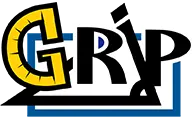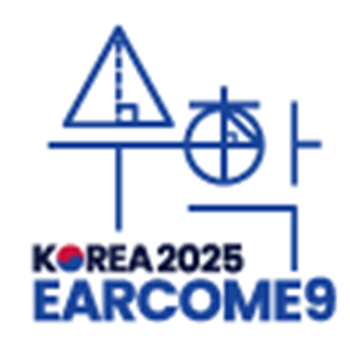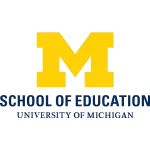Grasping the Rationality of Instructional Practice
Who Are We?
GRIP is a research group within the University of Michigan Marsal Family School of Education. Founded in 2001 by Pat Herbst, and initially dedicated to the study of geometry, reasoning, and instructional practices, the GRIP lab has been the training grounds for several doctoral students and postdoctoral fellows in mathematics education. The research at the GRIP lab over the last 19 years has maintained a focus on understanding the complexities of mathematics teaching, including the decisions teachers make that affect how mathematics is transacted in teaching and the rationality that justifies such decisions. From its initial focus on high school geometry instruction, the GRIP has also developed instruments and used them in the study of high school algebra and undergraduate mathematics instruction including geometry courses for teachers. In service of that work, the lab has developed and used numerous multimedia tools, including online storyboarding and annotation tools, useful for conducting innovative research which relies on engaging participants with representations of instructional practice. These tools have proven useful not only for conducting research but also to support a wide variety of online teaching—including its widespread use for the support of online practice-based teacher learning. In tune with this expanded focus of research, the GRIP acronym now spells out as “Grasping the Rationality of Instructional Practice.”
Recent News
Some of the recent news relating to the GRIP Lab and its teamMeet The Team
Some team members and partners at a Wasem Fruit Farm in October 2019. (left to right: Liza, Nic, Inah, Mollee, Mike, Ben!, Pat, Saba, Amanda, Cruz, Chris)
To learn more about the GRIP team, click here.
Featured Publications
| Title | Author(s) | Citation | Date |
|---|---|---|---|
| Comparing how college mathematics instructors and high-school teachers recognize professional obligations of mathematics teaching when making instructional decisions. | Ko I, Herbst P, Shultz M | Ko, I., Herbst, P., and Shultz, M. (2024). Comparing how college mathematics instructors and high-school teachers recognize professional obligations of mathematics teaching when making instructional decisions. Journal of Mathematics Teacher Education, 27,1055–1082. https://doi.org/10.1007/s10857-023-09595-2 | 2024 |
| An analysis of mathematics teacher educators’ subject-specific multimodal expertise when representing practice. | Schwarts G, Herbst P, Chazan D, Buchbinder O, Clark L, Wieman R, Zahner W | Schwarts, G., Herbst, P., Chazan, D., Buchbinder, O., Clark, L., Wieman, R., and Zahner, W. (2025). An analysis of mathematics teacher educators’ subject-specific multimodal expertise when representing practice. Journal of Mathematics Teacher Education, 28, 341–368. https://doi.org/10.1007/s10857-024-09658-y | 2025 |
| Facilitating Demonstration and Simulation in Practice-Based Professional Development | Jeon S, Herbst P G, Brown A | Jeon, S., Herbst, P. G., & Brown, A. (2024). Facilitating Demonstration and Simulation in Practice-Based Professional Development. Journal of Educational Research in Mathematics, 34(3), 733-752. https://doi.org/10.29275/jerm.2024.34.3.733 | 2024 |
| (Toward) Essential student learning objectives for teaching geometry to pre-service secondary teachers | An T, Boyce S, Brown A, Buchbinder O, Cohen S, Dumitrascu D, Escuadro H, Herbst P, Ion M, Krupa E, Miller N, Pyzdrowski L, Sears R, St Goar J, Szydlik S, Vestal S | An, T., Boyce, S., Brown, A., Buchbinder, O., Cohen, S., Dumitrascu, D., Escuadro, H., Herbst, P., Ion, M., Krupa, E., Miller, N. Pyzdrowski, L., Sears, R., St. Goar, J., Szydlik, S., & Vestal, S. (2024). (Toward) Essential student learning objectives for teaching geometry to pre-service secondary teachers. In B. Benken (Ed.), The AMTE Handbook of Mathematics Teacher Education: Reflection on Past, Present and Future – Paving the Way for the Future of Mathematics Teacher Education (pp.175-197). IAP | 2024 |
| Understanding the characteristics of mathematical content knowledge for teaching algebra in high schools and community colleges | Ko I, Mesa V, Durancyzk I, Herbst P, Kohli N, Strom A, Watkins L | Ko, I., Mesa, V., Duranczyk, I., Herbst, P., Kohli, N., Ström, A., & Watkins, L. (2024). Understanding the characteristics of mathematical content knowledge for teaching algebra in high schools and community colleges. International Journal of Mathematical Education in Science and Technology 55(3), 590-614 | 2024 |










